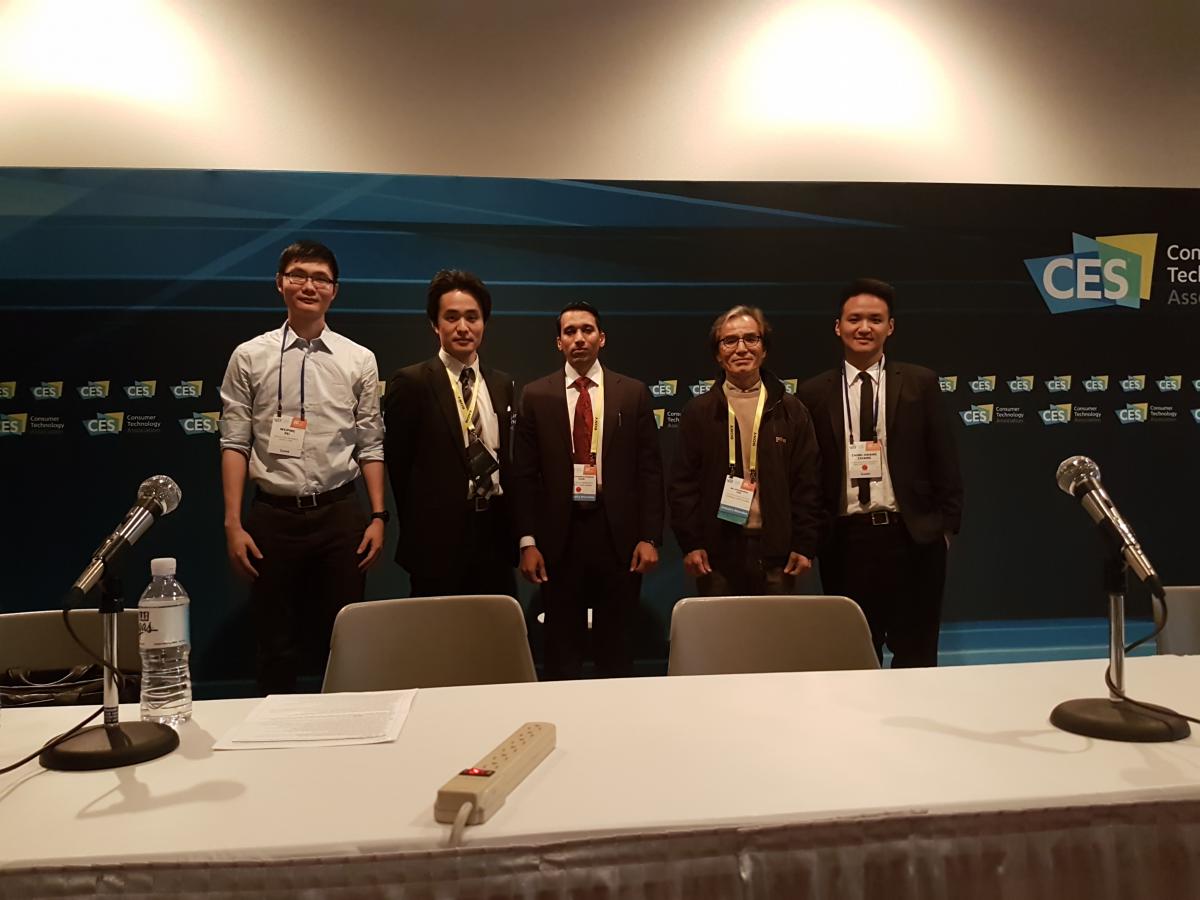أنت هنا

Prof. Muhammad Khurram Khan form the Center of Excellence in Information Assurance at King Saud University presented a research paper and chaired a session at the 35th IEEE International Conference on Consumer Electronics (ICCE 2017) that was held in Las Vegas, USA from 8-10 Jan. 2017.
Prof. Khan, on behalf of co-authors Dr. Z. Siddiqui and Dr. O. Tayan, presented their paper entitled, “A Secure Framework for Digital Quran Certification” at the conference. ICCE is a flagship international conference of the Institute of Electrical and Electronics Engineers (USA), which is held every year since 1982 in conjunction with the prestigious Consumer Electronics Show (CES) at Las Vegas, USA.
This paper is an outcome of a KACST funded project in which, research teams from the Center of Excellence in Information Assurance (CoEIA) at King Saud University and NOOR IT Research Center for the Holy Quran at Taibah University, Madinah, are exploring the methods and mechanisms to protect the integrity of digital Holy Quran contents available in digital formats e.g. mobile and web applications etc.
“The Holy Quran applications have been made available in digital formats and freely distributed through Internet in the form of portable documents, websites, mobile applications, and digital handheld devices, etc. The digitization of religious contents brings easiness to people to explore, read and study contents with their convenience on the move. On the other hand, authenticity of the content itself might be uncertain because it is cumbersome to track and verify hundreds, even thousands of digital versions of Quran available online. In addition, recently, many vendors are producing and distributing Holy Quran applications without any verification and certification from authorized religious bodies. In this situation, end-users or any concerned organizations are unable to observe the originality of the digital Holy Quran, except if they make an extensive manual research by referring to authentic Quran. Unfortunately, this process is difficult, time-consuming and demands expertise and high circumspection”, stated by Prof. Khan.
“We have been working for last couple of years to come up with novel solutions to solve the aforementioned research challenges and our proposed framework and techniques can overcome the authentication problems in the minds of reciters of digital versions of Holy Quran. The research outcome of this project is very encouraging and it has attracted commendable response from Muslims around the World”, further stated by Prof. Khan.
“Now, we are looking for support to spin-off a company and we are seeking financial support to implement this project in the real-life environment. We welcome funding from investors to shake hand with us in this noble cause for over 1.6 billion Muslims around the World. We are also grateful to KACST, KSU and Taibah University for their generous support and encouragement to carry out this research project of highly important nature”, pointed out by Prof Khan and his team members.